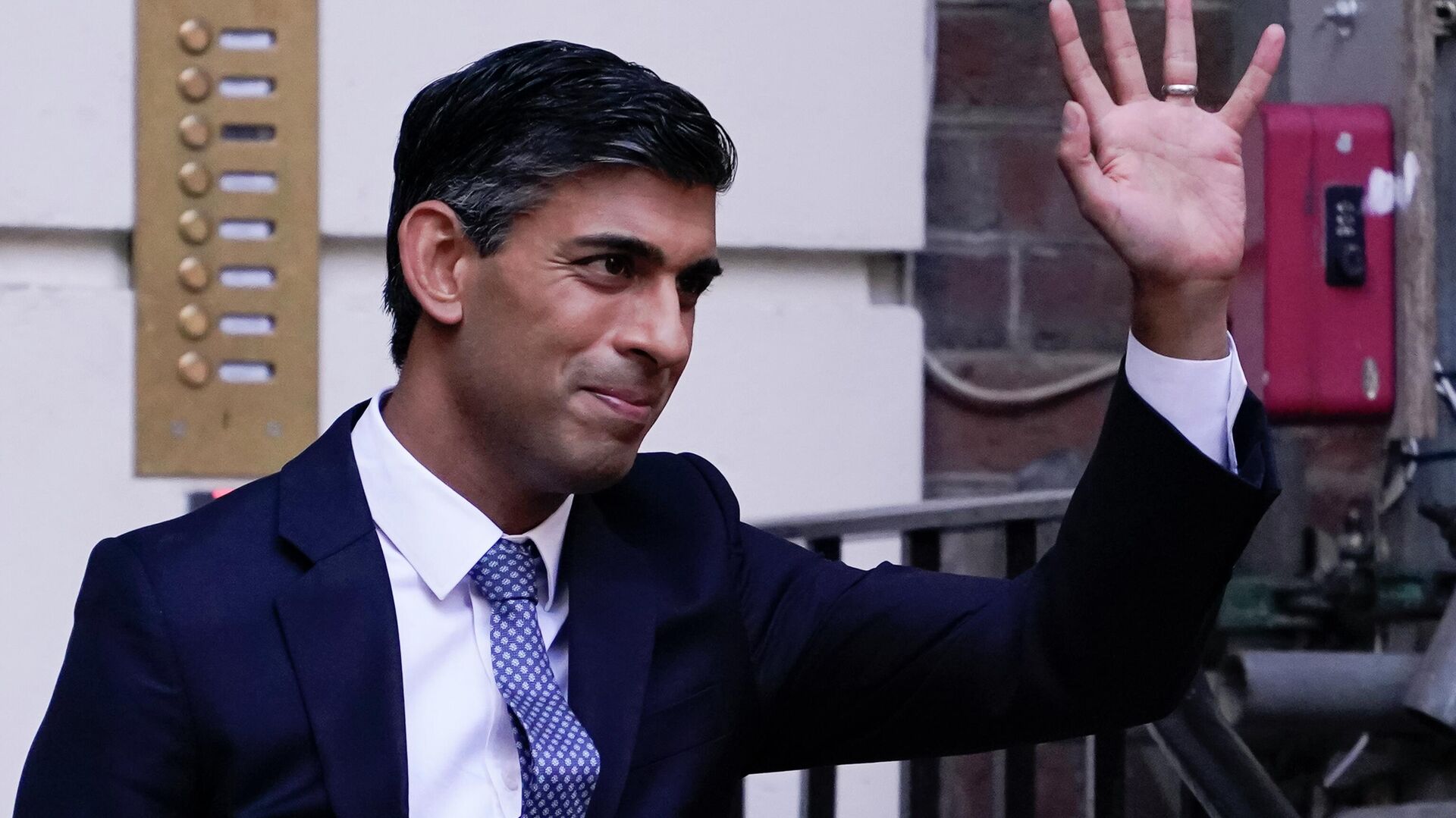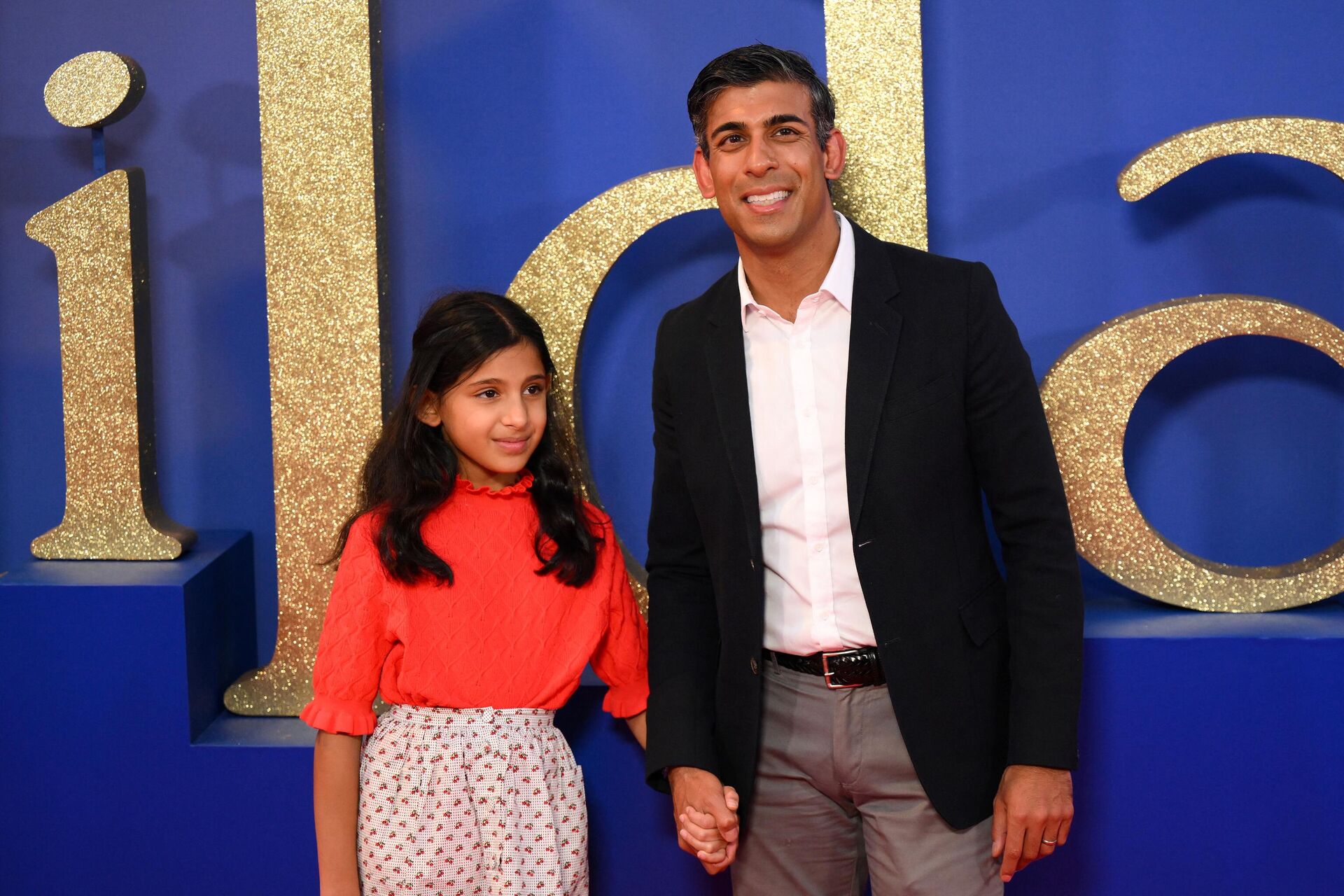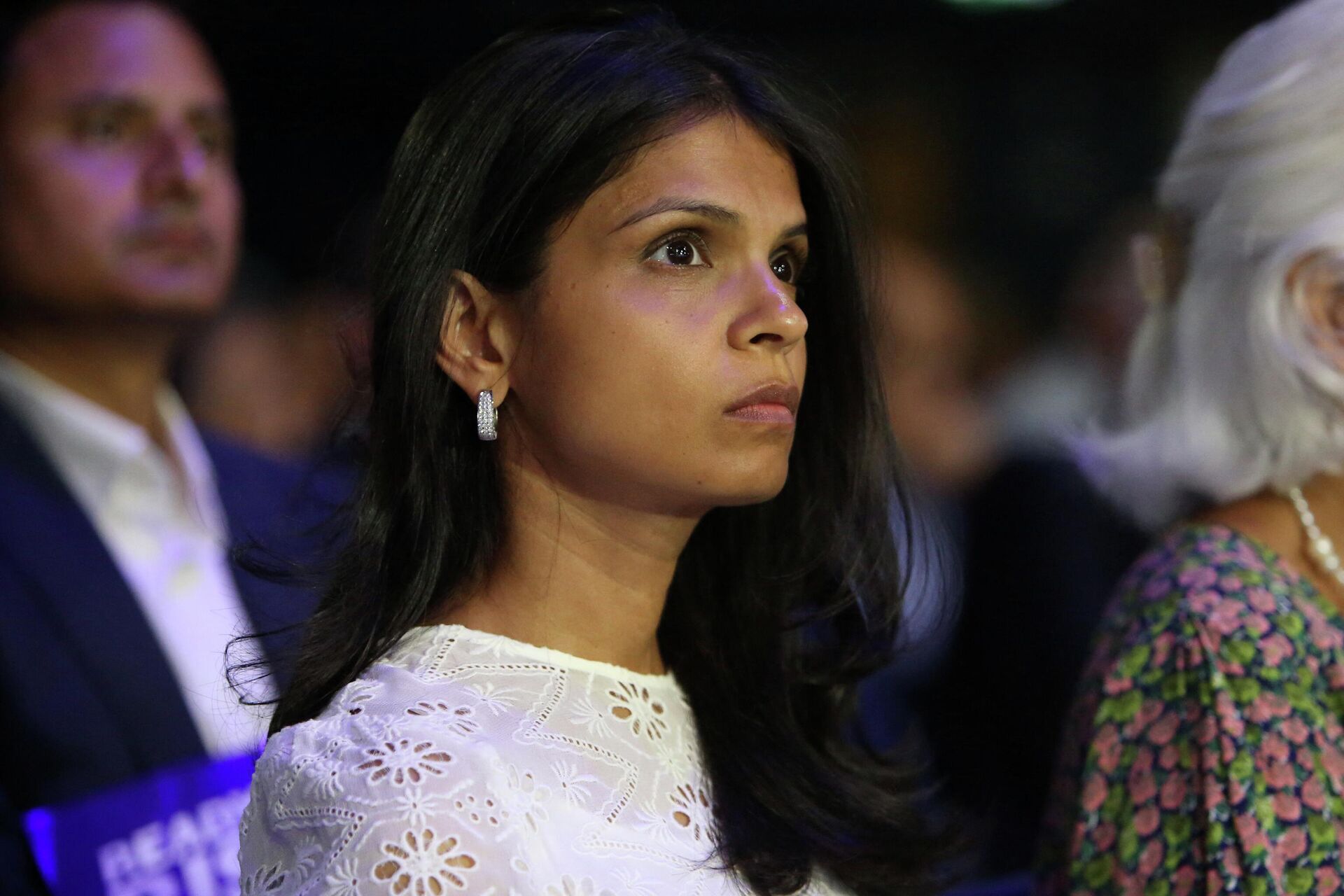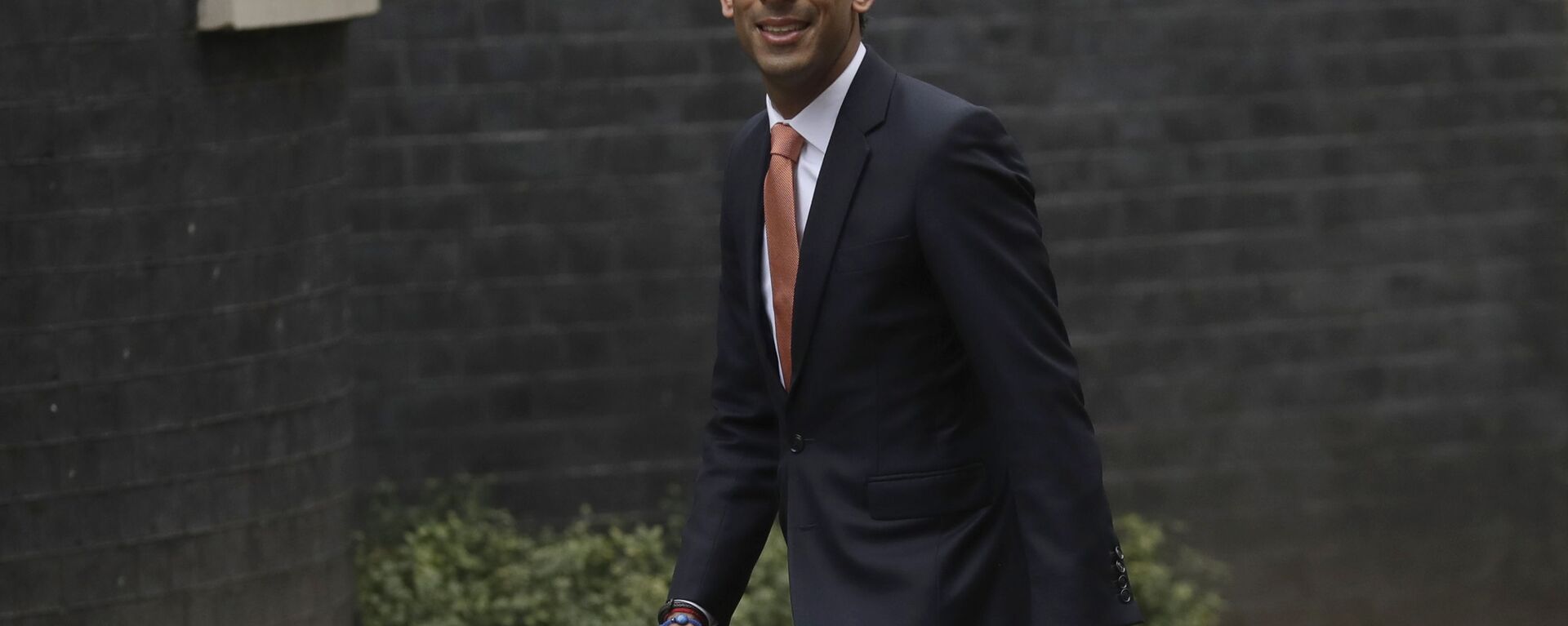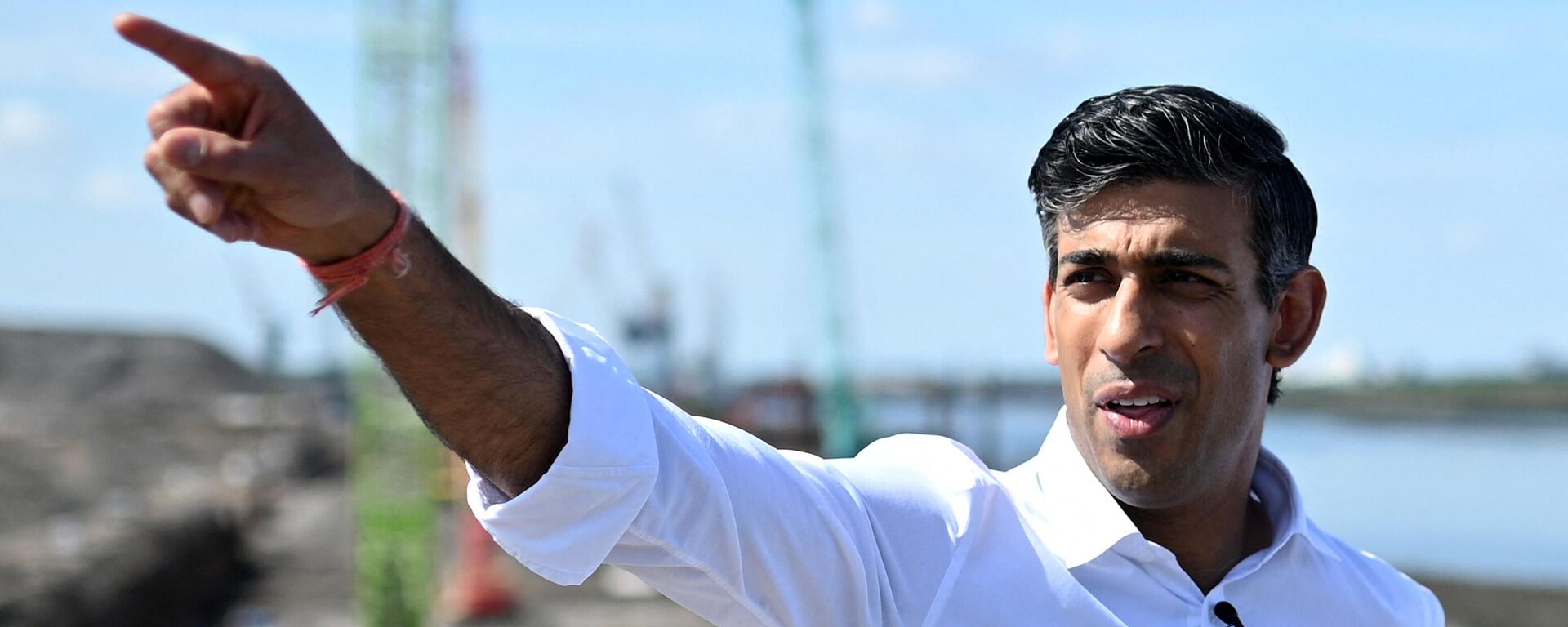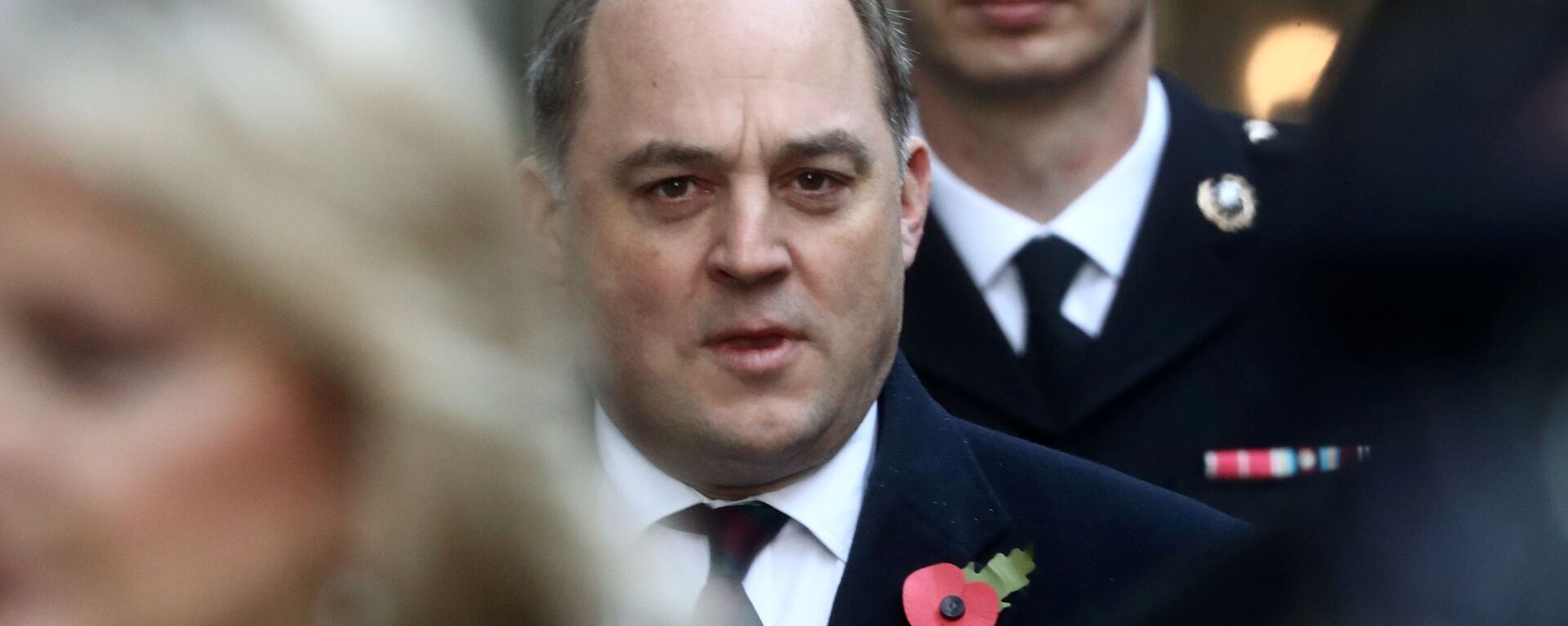https://sputnikglobe.com/20221025/who-is-uks-new-prime-minister-rishi-sunak-1102610301.html
Who is UK’s New Prime Minister Rishi Sunak?
Who is UK’s New Prime Minister Rishi Sunak?
Sputnik International
Rishi Sunak became the first Indian-origin Prime Minister of the United Kingdom after Liz Truss announced her resignation on October 20, unleashing yet another... 25.10.2022, Sputnik International
2022-10-25T14:51+0000
2022-10-25T14:51+0000
2023-05-28T15:24+0000
rishi sunak
boris johnson
liz truss
uk conservative party
sputnik explains
united kingdom (uk)
https://cdn1.img.sputnikglobe.com/img/07e6/0a/19/1102614069_0:161:3071:1888_1920x0_80_0_0_1a0525b2ad01ac5c4978756424141434.jpg
Rishi Sunak has officially become UK Prime Minister. The former Chancellor of the Exchequer is the third Tory to hold office at No 10, Downing Street, this year, as Liz Truss announced her resignation on October 20, lasting just 44 days in the job. After ex-PM Boris Johnson pulled out of the conservative party leadership race on October 23, and would-be candidate House of Commons leader Penny Mordaunt failed to garner the required number of at least 100 nominations from Conservative MPs, Sunak had been the sole contender for the position. As the MP for Richmond delivered a statement at the Conservative Party’s headquarters on Monday, the UK’s first Prime Minister of colour and the first practising Hindu to take the top job said:King Charles III accepted the resignation of Liz Truss on October 25, asking Rishi Sunak to form a new government.What Are Rishi Sunak’s Origins?The 42-year-old UK prime minister was born on May 12, 1980, in Southampton, Hampshire, South East England. His parents are Indians, Yashvir and Usha Sunak, who were born in Kenya and Tanzania respectively. Rishi's father was a General Practitioner (GP) in the National Health Service (NHS), and Usha was running a local pharmacy. The new prime minister's grandparents were born in the Punjab province only to move to East Africa later, and then to the United Kingdom in the 1960s.Rishi Sunak, who is 170cm (5ft 6 inches) tall, has two siblings (he is the oldest one). His brother Sanjay is a psychologist, and his sister Rakhi works as the Head of Humanitarian, Peacebuilding, UN Funds and Programmes at the Foreign, Commonwealth and Development Office.When opening up about his Indian lineage, Sunak stated in UK media interviews that, “British Indian is what I tick on the census, we have a category for it. I am thoroughly British, this is my home and my country, but my religious and cultural heritage is Indian, my wife is Indian. I am open about being a Hindu.”Rishi Sunak received an education at one of the UK’s elite private boarding schools - the prestigious Winchester College. He then proceeded to study philosophy, politics, and economics at Oxford University, where he was awarded a first-class degree. Sunak gained a master’s of business administration (MBA) at Stanford University, California.During his university time, Sunak was an intern at Conservative Campaign Headquarters. Then, he did a stint as an analyst at investment bank Goldman Sachs between 2001 and 2004. After that, the future PM proceeded to join the Children's Investment Fund Management (TCI), becoming a partner in September 2006. He also carved out a career at another hedge fund firm called Theleme Partners in 2009.It was at Stanford University that Rishi Sunak met his wife, Akshata Murty. Akshata is the daughter of Indian billionaire and co-founder of an IT services company - Infosys - NR Narayana Murthy, dubbed the Bill Gates of India. Incidentally, Akshata Murty’s family use two different spellings for their surname – Murty and Murthy – with her father inclined to favour the latter.The couple tied the knot in 2009, getting married in Bangalore, India. The pair soon moved to the UK, and now have two daughters, Anoushka and Krishna. For some time, Rishi Sunak served as the director of investment firm Catamaran Ventures, owned by his wealthy father-in-law.Rishi Sunak's wife is listed on LinkedIn as the boss of three businesses: capital and private equity firm Catamaran Ventures, gym chain Digme Fitness and gentlemen’s outfitters New & Lingwood. Murty found herself in the crosshairs over her tax affairs earlier in the year after it emerged that her status as a non-domiciled UK resident meant she dodged British levies on her earnings from outside the UK. She later agreed to pay UK taxes on her worldwide income.What is Rishi Sunak's Net Worth?After Rishi Sunak's came out victorious in the Tory leadership race, his wealth was thrust into the spotlight. The ex-banker Sunak and his Indian tech heiress wife's net worth is an estimated 730 million pounds ($830 million), as per the Sunday Times Rich List. In comparison, the late British monarch, Queen Elizabeth II, was worth about 370 million pounds ($420 million), according to the 2022 list, published before her death. The greater part of the affluence attributed to the Sunak family comes from income generated by Murty’s stake in her father’s company, Infosys. The software firm's dividends for the 2021/2022 tax year reportedly totalled around £11.5m ($13, 014m). As for Rishi Sunak's wife, her total net worth, according to the Bloomberg Billionaires Index, is around $1.2billion, which means her fortune is much more impressive than that of King Charles III.The deep-pocketed Sunaks are listed as owning at least three residences in Britain: a £6.6 million ($7.4 million) mansion in Kensington, London, a home in the Chelsea neighborhood of the UK capital, ostensibly used as a 'holiday home' to accomodate relatives dropping in for a visit, and a typical Georgian manor house in North Yorkshire, which the family is believed to use as a weekend retreat. When visiting the US, the Sunak family can stay at their penthouse apartment valued at around $6 million in Santa Monica, California, according to media reports. As far as vehicles are concerned, earlier in March, Rishi Sunak claimed he drives a Volkswagen Golf to get around London. The new PM reportedly owns four cars, one of which is believed to be a Range Rover, costing around £94,000 ($ 106,400). The other two cars are said to be a Lexus and a BMW.The reportedly highly-disciplined new PM follows a strict routine on most mornings, with a workout on the treadmill or the Peloton bike. Rishi Sunak, who is a lifelong teetotaller and doesn’t eat beef, allegedly has a soft spot in his diet for Coca-Cola and double chocolate muffins. The Southampton-born PM has often publicly acknowledged he is an avid football fanatic and a long-time Saints (Southampton FC) fan.How Did Sunak Get From MP to PM?Rishi Sunak first ventured into the political fray in 2015 and can boast a lightening-fast ascent from then on. He was picked as a candidate to stand in one of the so-called ‘safe’ Tory seats of Richmond, North Yorkshire, back in 2014. The seat, held by the Conservative Party for no less than 100 years, was secured by him in May 2015 with more than 50 per cent of the vote. From 2015 to 2017, the aspiring politician served as a member of the Environment, Food and Rural Affairs Select Committee. Throughout the Brexit campaign Sunak was a supporter of the UK leaving the EU bloc, and applauded the result sof the EU referendum in 2016. Specifically, the politician is known for having penned a report for the Centre for Policy Studies that lauded the establishment of free ports after Brexit.Rishi Sunak won reelection as MP from the above-mentioned Richmond seat in the 2017 General Election. He took on the position of Parliamentary Under-Secretary in the period from January 2018 to July 2019. When the time came for the 2019 Conservative Party leadership election, Sunak threw his full support behind the candidacy of Boris Johnson. The young politician was himself re-elected and subsequently appointed Chief Secretary to the Treasury by then-Prime Minister Boris Johnson in July 2019. At the time, Sunak served under Chancellor Sajid Javid, emtering the Privy Council as a member on July 25, 2019. Rishi Sunak was promoted to Chancellor of the Exchequer post-cabinet reshuffle in February 2020. However, he dramatically quit the post in July 2022 after Johnson’s government found itself compromised by a slew of damning scandals. What Policies is Rishi Sunak Famous For?The British politician who is now the country's PM presented his first budget on March 11, 2020, amid the raging COVID-19 epidemic. At the time, as he announced £30 billion of additional spending, while £12 billion was designated to deal with the fallout from the measures introduced to tackle the coronavirus pandemic. On March 17, 2020, Sunak unveiled £330 billion to prop up struggling businesses, along with a scheme for salary subsidy for employees, followed by the job retention scheme (the CJRS) that ended up being extended until September 30, 2021.Sunak’s £30 billion-worth ‘Eat Out to Help Out Scheme’ was tailored to give a boost to faltering jobs in the hospitality industry by coaxing post-lockdown wary people out of their homes into pubs and cafes. The government-subsidized food and soft drinks offer, giving people the chance to get up to 50% off their food and drinks bill when venturing out to dine lasted from 3 to 31 August 2020. It was this program that inspired some in the media to dub Sunak "Dishy Rishy." One of Britain's youngest finance ministers, Sunak found himself in the headlines in spring when he laid bare plans for tax levels to be hiked up to their highest in more than 70 years.Incidentally, Rishi Sunak's own pandemic-related record is not spotless. In a link to the notorious so-called "partygate" scandal that toppled Johnson’s government, Sunak was fined by the police while in office as Chancellor for attending boozy parties at 10 Downing Street as Britons were languishing under strict lockdown restrictions.After scandal-mired then-Prime Minister Boris Johnson announced his resignation in July 2022, Rishi Sunak threw his hat into the ring, eventually battling it out with Liz Truss for Tory leadership. Analysts cited by UK media reports have since speculated that it was Sunak’s track record for fiscal conservatism that cost him the leadership contest against Truss, who had brandished the promise of sweeping tax cuts throughout her campaign. At the time, Sunak had bluntly warned the mulled tax slashing was fraught with potential disaster for the British economy, saying, "Borrowing your way out of inflation isn’t a plan, it’s a fairytale.” The UK’s first PM of colour pitched himself, albeit unsuccessfully at the time, as the fiscally conservative choice for Downing Street, promising to “deliver tax cuts that drive growth”, but to do so in a “way that’s responsible”. He vowed to slash the base rate of income tax by 20 percent, shedding 1p off income tax in 2024 and an additional 3p over the next parliament. Rishi Sunak also left many somewhat dumbfounded with his unexpected U-turn to scrap value added tax on domestic energy bills, after dismissing the VAT cuts earlier, when he was Chancellor of the Exchequer. In February he had argued in the Commons the policy “would disproportionately benefit wealthier households”.As the cost of living crisis increasingly made people across the UK tighten their purse-strings, Rishi Sunak said during a leadership debate that VAT cuts were “pretty much the only lever left” to help millions of households in October. He had also deprecated Truss’s £34 billion ($41 billion) planned tax cuts, pointing out that the economy didn’t need a “sugar rush boom that will make us all feel better for months, but then it runs out of control." Taking into account the havoc that Truss's gamble with her tax bonanza mini-budget unleashed on the economy and financial markets, the former chancellor appears to have been vindicated over his warnings.What Challenges Does Rishi Sunak Face as PM?Rishi Sunak's appointment as Prime Minister came against the backdrop of a looming painful recession, head-spinning inflation, increasingly outsize borrowing bills for the givernment and vocal calls to tax more and clamp down on spending. After the earthquake-like repercussions from Liz Truss’s disastrous mini-budget, with subsequent U-turns on the government’s unfunded tax-cutting economic package sending shock waves across jittery financial markets and sinking the Tories in the polls, fixing the economy is no easy task. Rishi Sunak, who consistently tried to position himself as a low-tax Tory, pledged to reduce the bottom rate of income tax from 20 percent to 16 percent overtime, to ensure the cuts were funded by “growth” and not borrowing. “I will never get taxes down in a way that just puts inflation up,” he said.However, the former hedge fund partner's decision to freeze income tax thresholds until 2026 will force approximately 1.6m more people to pay the higher rate of income tax by the end of the parliament, warned the Institute for Fiscal Studies (IFS). Sunak also pledged to elevate corporation tax from 19 to 25 percent, while previously, as Chancellor, he was responsible for the 1.25 percent increase in National Insurance contributions for employees and employers. However, this was ditched by the government under Truss. His allies have since been cited in media reports as claiming Sunak will not reintroduce the National Insurance increase, albeit it would have potentially raised £15 billion, helping to set public finances on a more even keel. Rishi Sunak also imposed a four-year freeze on income tax thresholds that was set to raise £21billion.One conundrum facing Sunak is the Energy Price Guarantee, an originally two-year energy subsidy scheme conceived by the short-lived PM liz Truss to help households and businesses cope with higher gas and electricity bills. However, a subsequent screeching U-turn by her new Chancellor Jeremy Hunt, appointed after Truss cut loose Kwasi Kwarteng, revealed the guarantee would only last until April. Without the scheme, a typical household energy bill could shoot up from the current £2,500 to more than £4,000 next spring, while also sending inflation rocketing.While earlier the ultra-rich new Downing Street 10 resident had said he was committed to ensuring that benefits, tax credits and pensions would rise in line with the recent inflation rate of 10.1 percent - the so-called triple lock - the promise might be hard to keep in the face of a mounting government debt burden. As the government has been struggling to balance its books, public sector workers have been increasingly restless, with UK trade unions demanding more money for their members. Tens of thousands of workers have already turned out this year, with strikes over pay by train drivers, dock workers, mail employees, criminal barristers and telecoms staff.The UK policy towards Ukraine, which has closely echoed that of the US and the so-called collective West, is not anticipated to change under Rishi Sunak. During leadership campaigning in the summer he unfalteringly promised to maintain Britain's backing for the Kiev regime and make an early visit to Ukraine's capital. Truss had promised to increase defence spending from 2 percent to 3 percent of national wealth, in a target the former Goldman Sachs analyst had called "arbitrary." In fact, defence spending plunged Sunak into a row with Ben Wallace, the Defence Secretary. Wallace had accused Sunak of attempting to block a multi-year settlement for the Armed Forces back in 2019. Rishi Sunak was also criticised by Ben Wallace for “walking out the door” when he resigned as Chancellor, cited by UK media as saying:Regarding the contentious post-Brexit Northern Ireland Protocol Rishi Sunak faces the same problems as Truss did. Thus, amid the lingering deadlock over the issue, there is still no Northern Ireland Executive after the power-sharing Assembly was put on pause due to the abstention by the Democratic Unionist Party (DUP) over the Protocol. After Brexit, in line with an agreement penned between the EU and the UK, the protocol has effectively placed a sea border between Great Britain and Northern Ireland. The DUP has argued that the Protocol undermines Northern Ireland’s place in the UK internal market and inside the union. As Foreign Secretary, Truss had crafted a controversial bill set to grant ministers the authority to scrap parts of the protocol.With her resignation, fixing power-sharing at Stormont - Northern Ireland Assembly - will be in Sunak's in tray now. During hustings in Belfast in August, Sunak promised to back the bill to override parts of the NI Protocol.Amid the spiraling energy crisis, tackling which was one of the pledges throughout Tory leadership campaigning, Rishi Sunak had vowed he would make the UK energy independent by 2045, saying:Regarding the Channel migrant crisis which plagued the tenure of Boris Johnson, Sunak said in the summer that he would cap the number of refugees the UK would accept annually, while also doing “whatever it takes” to make the Government’s Rwanda program for asylum seekers effective. Back in June, the maiden flight to send asylum seekers to the East African country under the scheme announced by then-home secretary Priti Patel was grounded by a European Court of Human Rights challenge.Can Rishi Sunak Unite Divided Tories?As one of the wealthiest politicians in Westminster was named the new PM and leader of the Conservatives, he addressed the powerful backbench 1922 committee on Monday, stressing the importance of Tory unity, saying, “we’re united behind the policy and now cannot afford the indulgence of division over personality”. He rejected calls for early elections, resonating from opposition parties, including the Labour Party led by Sir Keir Starmer.In the wake of reported Tory in-fighting that plagued the party of late, Sir Jake Berry, then Conservative Party chairman, urged colleagues on Tuesday to set their differences aside, underscoring that it was "time for the whole party to come together and unite four-square behind Rishi." However, the following day, on October 26, he announced that he was giving up his seat in the cabinet as Sunak embarked upon a reshuffle of his team. Several other Johnson allies followed suit.Old party divisions, eating away at the unity of the Conservatives, linger and may thrust more than one spoke in the new PM’s wheel. After Boris Johnson bowed out of the Tory leadership contest on Sunday, one supporter of the ex-PM accused Sunak allies of plundering Johnson’s fan base.A member of Sunak’s campaign team admitted they had made a play for MPs in an effort to sway them into endorsing the former chancellor over Johnson, adding:Johnson reportedly harboured a grudge against Sunak after the latter dealt him a blow by quitting on July 5. Then Health Secretary Sajid Javid and Rishi Sunak had publishing letters announcing they were stepping down within minutes of each other, followed by a succession of other resignations.The developments were seen as instrumental in pushing the embattled Johnson to announce he was stepping down 20 days later. Accordingly, some Johnson supporters are reportedly calling for a general election in a bid to scupper Sunak before he has made any headway into his tenure. According to Tory peer Zac Goldsmith, an election was “morally unavoidable”. Sunak, rejected by the Tory party membership in the previous race only 49 days ago, is predicted as facing an uphill battle to glue together his party's fractious ranks. “There is going to be a grassroots mutiny... He’ll be lucky if he has anyone left to campaign for him come 2024,” one insider was cited as warning.
https://sputnikglobe.com/20220425/rishi-sunak-tumbles-to-bottom-of-tory-popularity-ranks-amid-wifes-taxes--us-green-card-controversy-1095041056.html
https://sputnikglobe.com/20201126/post-brexit-trade-deal-may-happen-but-not-at-any-cost-rishi-sunak-says-1081281915.html
https://sputnikglobe.com/20220727/sunak-vows-to-scrap-vat-on-household-energy-bills-as-he-trails-truss-amid-tory-leadership-race-1097837350.html
https://sputnikglobe.com/20221017/7-million-uk-households-on-cliff-edge-of-fuel-poverty-1101929721.html
https://sputnikglobe.com/20221018/co-op-coffin-makers-latest-uk-workers-set-to-strike-over-pay-1102008196.html
https://sputnikglobe.com/20220322/ben-wallace-duped-by-russian-pranksters-in-hoax-call-with-ukrainian-pm-1094077923.html
https://sputnikglobe.com/20220828/liz-truss-reportedly-causes-disquiet-in-washington-with-her-concerning-push-to-scrap-ni-protocol-1100081957.html
https://sputnikglobe.com/20220910/british-high-court-docs-reveal-uk-govenments-concerns-over-rwanda-deal-1100631895.html
https://sputnikglobe.com/20221020/tories-at-pains-truss-resigned-but-no-replacement-lined-up-academics-say-1102477555.html
https://sputnikglobe.com/20221026/will-rishi-sunak-outlast-liz-truss-44-days-as-british-pm--1102647077.html
united kingdom (uk)
Sputnik International
feedback@sputniknews.com
+74956456601
MIA „Rossiya Segodnya“
2022
News
en_EN
Sputnik International
feedback@sputniknews.com
+74956456601
MIA „Rossiya Segodnya“
Sputnik International
feedback@sputniknews.com
+74956456601
MIA „Rossiya Segodnya“
rishi sunak, rishi sunak prime minister, rishi sunak wife, rishi sunak budget, rishi sunak wife, rishi sunak video
rishi sunak, rishi sunak prime minister, rishi sunak wife, rishi sunak budget, rishi sunak wife, rishi sunak video
Rishi Sunak
has officially become UK Prime Minister. The former Chancellor of the Exchequer is the third Tory to hold office at No 10, Downing Street, this year, as Liz Truss announced her resignation on October 20, lasting just 44 days in the job.
After ex-PM Boris Johnson pulled out of the conservative party leadership race on October 23, and would-be candidate House of Commons leader Penny Mordaunt failed to garner the required number of at least 100 nominations from Conservative MPs, Sunak had been the sole contender for the position. As the MP for Richmond delivered a statement at the Conservative Party’s headquarters on Monday, the UK’s first Prime Minister of colour and the first practising Hindu to take the top job said:
“We now need stability and unity and I will make it my utmost priority to bring our party and our country together.”
King Charles III
accepted the resignation of Liz Truss on October 25, asking Rishi Sunak to form a new government.
What Are Rishi Sunak’s Origins?
The 42-year-old UK prime minister was born on May 12, 1980, in Southampton, Hampshire, South East England. His parents are Indians, Yashvir and Usha Sunak, who were born in Kenya and Tanzania respectively. Rishi's father was a General Practitioner (GP) in the National Health Service (NHS), and Usha was running a local pharmacy. The new prime minister's grandparents were born in the Punjab province only to move to East Africa later, and then to the United Kingdom in the 1960s.
Rishi Sunak, who is 170cm (5ft 6 inches) tall, has two siblings (he is the oldest one). His brother Sanjay is a psychologist, and his sister Rakhi works as the Head of Humanitarian, Peacebuilding, UN Funds and Programmes at the Foreign, Commonwealth and Development Office.
When opening up about his Indian lineage, Sunak stated in UK media interviews that, “British Indian is what I tick on the census, we have a category for it. I am thoroughly British, this is my home and my country, but my religious and cultural heritage is Indian, my wife is Indian. I am open about being a Hindu.”
Rishi Sunak received an education at one of the UK’s elite private boarding schools - the prestigious Winchester College. He then proceeded to study philosophy, politics, and economics at Oxford University, where he was awarded a first-class degree. Sunak gained a master’s of business administration (MBA) at Stanford University, California.
During his university time, Sunak was an intern at Conservative Campaign Headquarters. Then, he did a stint as an analyst at investment bank Goldman Sachs between 2001 and 2004. After that, the future PM proceeded to join the Children's Investment Fund Management (TCI), becoming a partner in September 2006. He also carved out a career at another hedge fund firm called Theleme Partners in 2009.
It was at Stanford University that Rishi Sunak met
his wife, Akshata Murty. Akshata is the daughter of Indian billionaire and co-founder of an IT services company - Infosys - NR Narayana Murthy, dubbed the Bill Gates of India. Incidentally, Akshata Murty’s family use two different spellings for their surname – Murty and Murthy – with her father inclined to favour the latter.
The couple tied the knot in 2009, getting married in Bangalore, India. The pair soon moved to the UK, and now have two daughters, Anoushka and Krishna. For some time, Rishi Sunak served as the director of investment firm Catamaran Ventures, owned by his wealthy father-in-law.
Rishi Sunak's wife is listed on LinkedIn as the boss of three businesses: capital and private equity firm Catamaran Ventures, gym chain Digme Fitness and gentlemen’s outfitters New & Lingwood. Murty found herself in the crosshairs over her tax affairs earlier in the year after it emerged that her status as a
non-domiciled UK resident meant she dodged British levies on her earnings from outside the UK. She later
agreed to pay UK taxes on her worldwide income.
What is Rishi Sunak's Net Worth?
After Rishi Sunak's came out victorious in the Tory leadership race, his wealth was thrust into the spotlight. The ex-banker Sunak and his Indian tech heiress wife's
net worth is an estimated 730 million pounds ($830 million), as per the
Sunday Times Rich List. In comparison, the late British monarch, Queen Elizabeth II, was worth about 370 million pounds ($420 million), according to the 2022 list, published before her death. The greater part of the affluence attributed to the Sunak family comes from income generated by Murty’s stake in her father’s company, Infosys. The software firm's dividends for the 2021/2022 tax year reportedly totalled around £11.5m ($13, 014m). As for Rishi Sunak's wife, her total net worth, according to the Bloomberg Billionaires Index, is around $1.2billion, which means her fortune is much more impressive than that of
King Charles III.
The deep-pocketed Sunaks are listed as owning at least three residences in Britain: a £6.6 million ($7.4 million) mansion in Kensington, London, a home in the Chelsea neighborhood of the UK capital, ostensibly used as a 'holiday home' to accomodate relatives dropping in for a visit, and a typical Georgian manor house in North Yorkshire, which the family is believed to use as a weekend retreat.
When visiting the US, the Sunak family can stay at their penthouse apartment valued at around $6 million in Santa Monica, California, according to media reports. As far as vehicles are concerned, earlier in March, Rishi Sunak claimed he drives a Volkswagen Golf to get around London. The new PM reportedly owns four cars, one of which is believed to be a Range Rover, costing around £94,000 ($ 106,400). The other two cars are said to be a Lexus and a BMW.
The reportedly highly-disciplined new PM follows a strict routine on most mornings, with a workout on the treadmill or the Peloton bike. Rishi Sunak, who is a lifelong teetotaller and doesn’t eat beef, allegedly has a soft spot in his diet for Coca-Cola and double chocolate muffins. The Southampton-born PM has often publicly acknowledged he is an avid football fanatic and a long-time Saints (Southampton FC) fan.
How Did Sunak Get From MP to PM?
Rishi Sunak first ventured into the political fray in 2015 and can boast a lightening-fast ascent from then on. He was picked as a candidate to stand in one of the so-called ‘safe’ Tory seats of Richmond, North Yorkshire, back in 2014. The seat, held by the Conservative Party for no less than 100 years, was secured by him in May 2015 with more than 50 per cent of the vote. From 2015 to 2017, the aspiring politician served as a member of the Environment, Food and Rural Affairs Select Committee. Throughout the
Brexit campaign Sunak was a supporter of the UK leaving the EU bloc, and applauded the result sof the EU referendum in 2016. Specifically, the politician is known for having penned a report for the Centre for Policy Studies that lauded the establishment of free ports
after Brexit.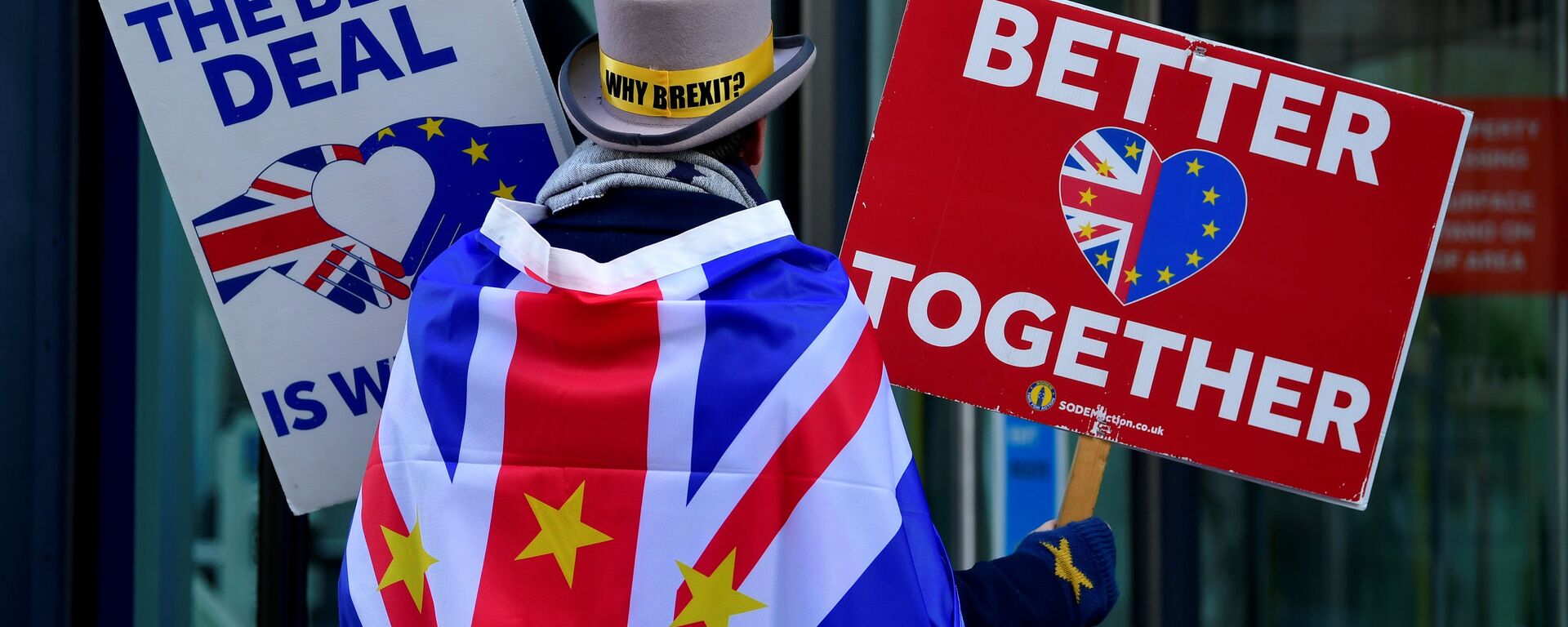
26 November 2020, 11:29 GMT
Rishi Sunak won reelection as MP from the above-mentioned Richmond seat in the 2017 General Election. He took on the position of Parliamentary Under-Secretary in the period from January 2018 to July 2019. When the time came for the 2019 Conservative Party leadership election, Sunak threw his full support behind the candidacy of Boris Johnson. The young politician was himself re-elected and subsequently appointed Chief Secretary to the Treasury by then-Prime Minister Boris Johnson in July 2019. At the time, Sunak served under Chancellor Sajid Javid, emtering the Privy Council as a member on July 25, 2019. Rishi Sunak was promoted to Chancellor of the Exchequer post-cabinet reshuffle in February 2020. However, he dramatically
quit the post in July 2022 after Johnson’s government found itself compromised by a slew of damning scandals.
What Policies is Rishi Sunak Famous For?
The British politician who is now the country's PM presented his first budget on March 11, 2020, amid the raging COVID-19 epidemic. At the time, as he announced £30 billion of additional spending, while £12 billion was designated to deal with the fallout from the measures introduced to tackle the coronavirus pandemic. On March 17, 2020, Sunak unveiled £330 billion to prop up struggling businesses, along with a scheme for salary subsidy for employees, followed by the job retention scheme (the CJRS) that ended up being extended until September 30, 2021.
Sunak’s £30 billion-worth ‘Eat Out to Help Out Scheme’ was tailored to give a boost to faltering jobs in the hospitality industry by coaxing post-lockdown wary people out of their homes into pubs and cafes. The government-subsidized food and soft drinks offer, giving people the chance to get up to 50% off their food and drinks bill when venturing out to dine lasted from 3 to 31 August 2020. It was this program that inspired some in the media to dub Sunak "Dishy Rishy."
One of Britain's youngest finance ministers, Sunak found himself in the headlines in spring when he laid bare plans for tax levels to be hiked up to their highest in more than 70 years.
Incidentally, Rishi Sunak's own pandemic-related record is not spotless. In a link to the notorious so-called "partygate" scandal that toppled Johnson’s government, Sunak
was fined by the police while in office as Chancellor for attending boozy parties at 10 Downing Street as Britons were languishing under strict lockdown restrictions.
After
scandal-mired then-Prime Minister Boris Johnson announced his resignation in July 2022, Rishi Sunak threw his hat into the ring, eventually battling it out with Liz Truss for Tory leadership. Analysts cited by UK media reports have since speculated that it was Sunak’s track record for fiscal conservatism that cost him the leadership contest against Truss, who had brandished the promise of sweeping tax cuts throughout her campaign. At the time, Sunak had bluntly warned the
mulled tax slashing was fraught with potential disaster for the British economy,
saying, "Borrowing your way out of inflation isn’t a plan, it’s a fairytale.”
The UK’s first PM of colour pitched himself, albeit unsuccessfully at the time, as the fiscally conservative choice for Downing Street, promising to “deliver tax cuts that drive growth”, but to do so in a “way that’s responsible”. He vowed to slash the base rate of income tax by 20 percent, shedding 1p off income tax in 2024 and an additional 3p over the next parliament.
Rishi Sunak also left many somewhat dumbfounded with his unexpected U-turn to scrap value added tax on domestic energy bills, after dismissing the VAT cuts earlier, when he was Chancellor of the Exchequer. In February he had argued in the Commons the policy “would disproportionately benefit wealthier households”.
As the cost of living crisis increasingly made people across the UK tighten their purse-strings, Rishi Sunak said during a leadership debate that VAT cuts were “pretty much the only lever left” to help millions of households in October. He had also deprecated Truss’s £34 billion ($41 billion)
planned tax cuts, pointing out that the economy didn’t need a “sugar rush boom that will make us all feel better for months, but then it runs out of control." Taking into account the havoc that Truss's gamble with her tax bonanza mini-budget unleashed on the economy and financial markets, the former chancellor appears to have been vindicated over his warnings.
What Challenges Does Rishi Sunak Face as PM?
Rishi Sunak's appointment as Prime Minister came against the backdrop of a looming
painful recession, head-spinning inflation, increasingly outsize borrowing bills for the givernment and vocal calls to tax more and clamp down on spending.
After the earthquake-like repercussions from Liz Truss’s disastrous
mini-budget, with subsequent U-turns on the government’s unfunded tax-cutting economic package sending shock waves across jittery financial markets and sinking the Tories in the polls, fixing the economy is no easy task.
Rishi Sunak, who consistently tried to position himself as a low-tax Tory, pledged to reduce the bottom rate of income tax from 20 percent to 16 percent overtime, to ensure the cuts were funded by “growth” and not borrowing.
“I will never get taxes down in a way that just puts inflation up,” he said.
However, the former hedge fund partner's decision to freeze income tax thresholds until 2026 will force approximately 1.6m more people to pay the higher rate of income tax by the end of the parliament, warned the Institute for Fiscal Studies (IFS). Sunak also pledged to elevate corporation tax from 19 to 25 percent, while previously, as Chancellor, he was responsible for the 1.25 percent increase in National Insurance contributions for employees and employers. However, this was ditched by the government under Truss. His allies have since been cited in media reports as claiming Sunak will not reintroduce the National Insurance increase, albeit it would have potentially raised £15 billion, helping to set public finances on a more even keel. Rishi Sunak also imposed a four-year freeze on income tax thresholds that was set to raise £21billion.
One conundrum facing Sunak is the Energy Price Guarantee, an originally two-year energy subsidy scheme conceived by the short-lived PM liz Truss to help households and businesses cope with
higher gas and electricity bills. However, a subsequent screeching U-turn by her new Chancellor Jeremy Hunt, appointed after Truss cut loose Kwasi Kwarteng, revealed the guarantee would only last until April. Without the scheme, a typical household energy bill could shoot up from the current £2,500 to more than £4,000 next spring, while also sending inflation rocketing.
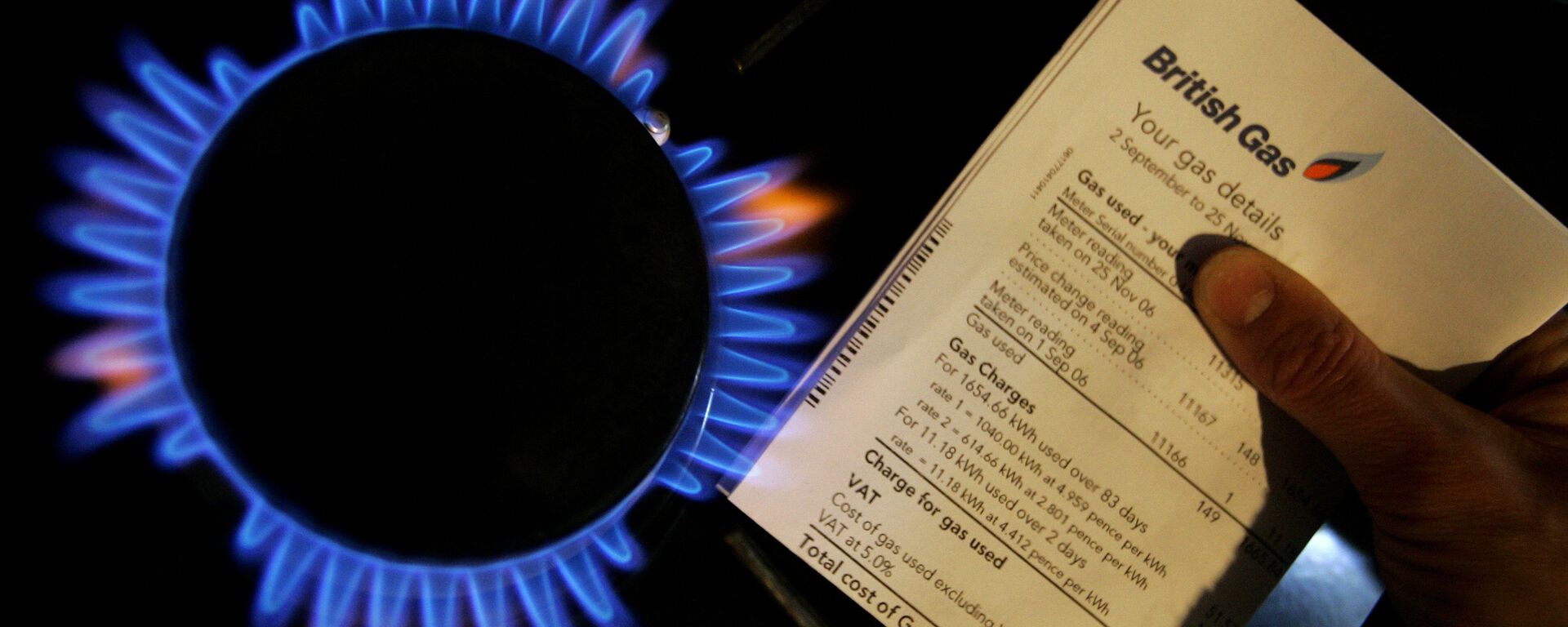
17 October 2022, 14:02 GMT
While earlier the ultra-rich new Downing Street 10 resident had said he was committed to ensuring that benefits, tax credits and pensions would rise in line with the recent inflation rate of 10.1 percent - the so-called triple lock - the promise might be hard to keep in the face of a mounting government debt burden.
As the government has been struggling to balance its books, public sector workers have been increasingly restless, with UK trade unions demanding more money for their members. Tens of thousands of workers have already turned out this year, with strikes over pay by train drivers, dock workers, mail employees, criminal barristers and telecoms staff.

18 October 2022, 13:49 GMT
The UK
policy towards Ukraine, which has closely echoed that of the US and the so-called collective West, is not anticipated to change under Rishi Sunak. During leadership campaigning in the summer he unfalteringly promised to maintain Britain's backing for the Kiev regime and make an early visit to Ukraine's capital. Truss had promised to increase defence spending from 2 percent to 3 percent of national wealth, in a target the former Goldman Sachs analyst had called "arbitrary." In fact, defence spending plunged Sunak into a row with Ben Wallace, the Defence Secretary. Wallace had accused Sunak of attempting to block a multi-year settlement for the Armed Forces back in 2019. Rishi Sunak was also criticised by Ben Wallace for “walking out the door” when he resigned as Chancellor, cited by UK media as saying:
“I don’t have the luxury as Defence Secretary of just walking out the door — I have roles in keeping this country safe.. And the guardian of the markets, you know, the guardian of our economy, is the Chancellor.”
Regarding the contentious post-Brexit
Northern Ireland Protocol Rishi Sunak faces the same problems as Truss did. Thus, amid
the lingering deadlock over the issue, there is still no Northern Ireland Executive after the power-sharing Assembly was put on pause due to the abstention by the Democratic Unionist Party (DUP) over the Protocol. After Brexit, in line with an agreement penned between the EU and the UK, the protocol has effectively placed
a sea border between Great Britain and Northern Ireland. The DUP has argued that the Protocol undermines Northern Ireland’s place in the UK internal market and inside the union. As Foreign Secretary, Truss had crafted a controversial bill set to grant ministers the authority to scrap parts of the protocol.With her resignation, fixing power-sharing at Stormont - Northern Ireland Assembly - will be in Sunak's in tray now. During hustings in Belfast in August, Sunak promised to back the bill to override parts of the NI Protocol.
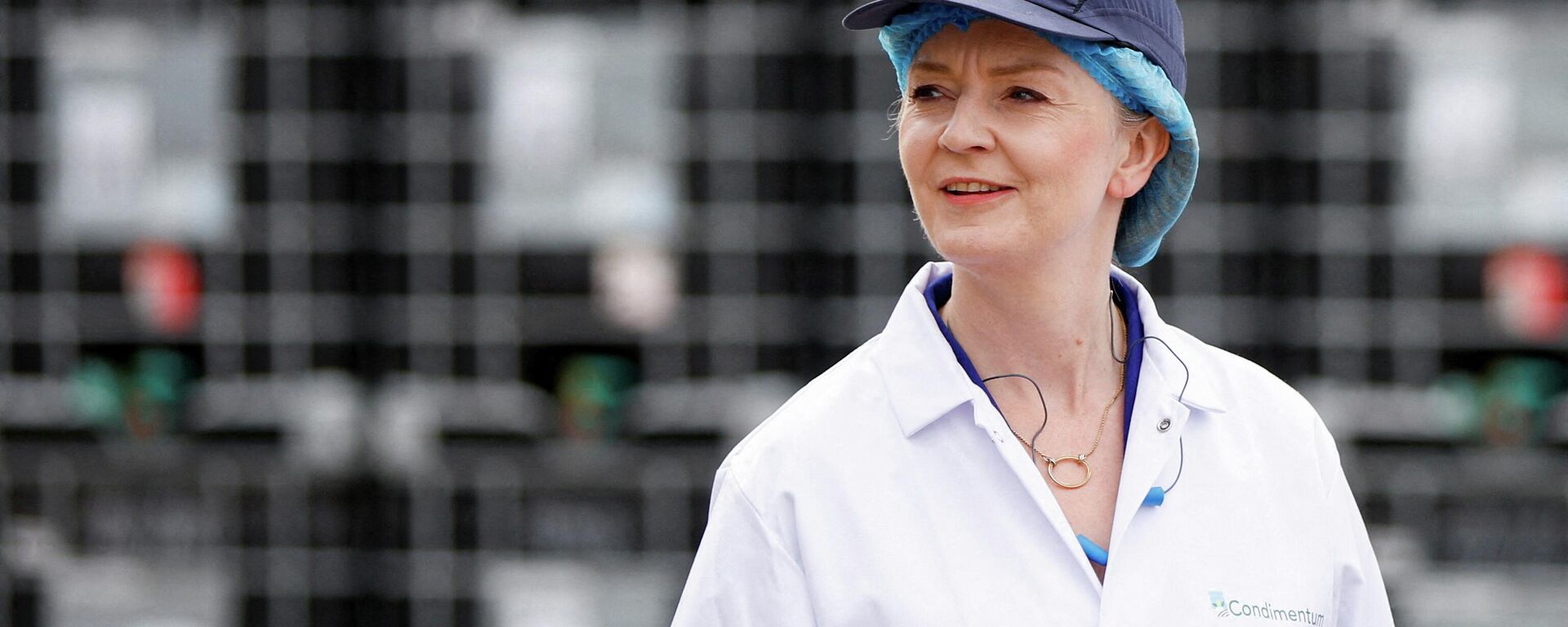
28 August 2022, 08:58 GMT
Amid the spiraling
energy crisis, tackling which was one of the pledges throughout Tory leadership campaigning, Rishi Sunak had vowed he would make the UK energy independent by 2045, saying:
“We need more offshore wind, more rooftop solar and more nuclear. We need to insulate millions of homes and ensure that people know about the steps that they can take, at no cost, to improve the efficiency of their homes," he said.

10 September 2022, 10:45 GMT
Regarding the Channel migrant crisis which plagued the tenure of Boris Johnson, Sunak said in the summer that he would cap the number of refugees the UK would accept annually, while also doing “whatever it takes” to make the Government’s Rwanda
program for asylum seekers effective. Back in June, the maiden flight to send asylum seekers to the East African country under the scheme announced by then-home secretary Priti Patel was grounded by a European Court of Human Rights challenge.
Can Rishi Sunak Unite Divided Tories?
As one of the wealthiest politicians in Westminster was named the new PM and leader of the Conservatives, he addressed the powerful backbench 1922 committee on Monday, stressing the importance of Tory unity, saying, “we’re united behind the policy and now cannot afford the indulgence of division over personality”. He rejected calls for early elections, resonating from opposition parties, including the Labour Party led by Sir Keir Starmer.
In the wake of reported
Tory in-fighting that plagued the party of late, Sir Jake Berry, then Conservative Party chairman, urged colleagues on Tuesday to set their differences aside, underscoring that it was "time for the whole party to come together and unite four-square behind Rishi." However, the following day, on October 26, he announced that he was giving up his seat in the cabinet as Sunak embarked upon a reshuffle of his team. Several other Johnson allies followed suit.
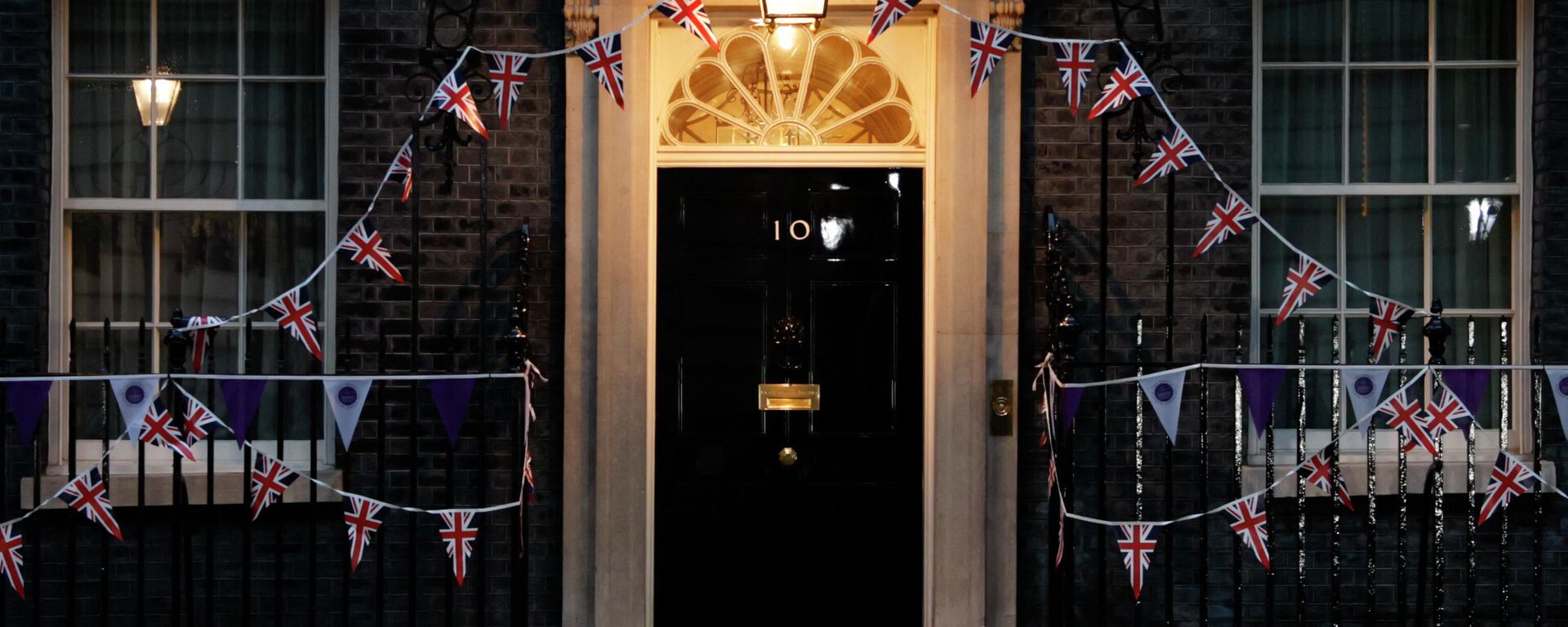
20 October 2022, 18:44 GMT
Old party divisions, eating away at the unity of the Conservatives, linger and may thrust more than one spoke in the new PM’s wheel. After Boris Johnson bowed out of the Tory leadership contest on Sunday, one supporter of the ex-PM accused Sunak allies of plundering Johnson’s fan base.
“They went after Boris’s backers to try to stop him hitting the 100,” a source was cited as saying by The Telegraph.
A member of Sunak’s campaign team admitted they had made a play for MPs in an effort to sway them into endorsing the former chancellor over Johnson, adding:
“There are people who feel they owe their career to Boris and are terrified of losing their seats. They felt they had to come out publicly for him but privately said they would vote for Rishi.”
Johnson reportedly
harboured a grudge against Sunak after the latter dealt him a blow by quitting on July 5. Then Health Secretary Sajid Javid and Rishi Sunak had publishing letters announcing they were stepping down within minutes of each other, followed by a succession of other resignations.The developments were seen as instrumental in pushing the embattled Johnson to announce he was stepping down 20 days later. Accordingly, some Johnson supporters are reportedly calling for a general election in a bid to scupper Sunak before he has made any headway into his tenure. According to Tory peer Zac Goldsmith, an election was “morally unavoidable”. Sunak, rejected by the Tory party membership in the previous race only 49 days ago, is predicted as facing an uphill battle to glue together his party's
fractious ranks.
“There is going to be a grassroots mutiny... He’ll be lucky if he has anyone left to campaign for him come 2024,” one insider was cited as warning.
26 October 2022, 04:39 GMT
